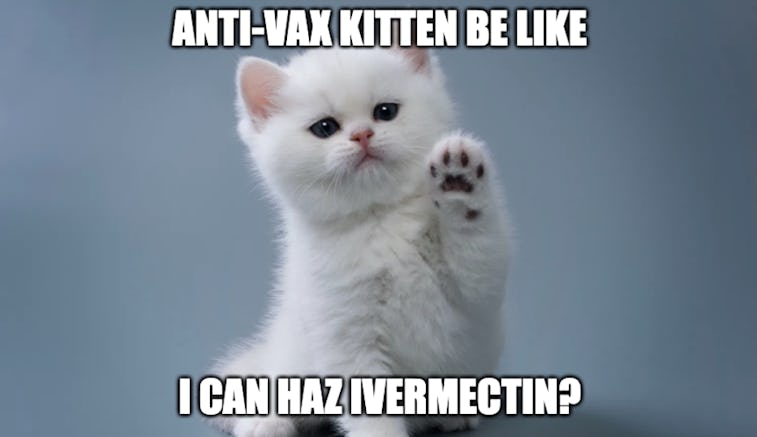Memes
New study confirms most people prefer memes to the plague
New research on COVID-19 coping methods published by the American Psychological Association contains somewhat predictable results.

A new study published in the scientific journal Psychology of Popular Media details the effects memes can have on a person’s ability to cope with the stress of a deadly, seemingly never-ending pandemic — and wouldn’t you know it? It turns out that staring at inane images of babies and kittens is much more enjoyable and calming than ruminating on COVID-19’s societal damage.
"As the pandemic kept dragging on, it became more and more interesting to me how people were using social media, and memes in particular, as a way to think about the pandemic," said lead author, Jessica Gall Myrick, Ph.D., in a press release, adding that the team “found that viewing just three memes can help people cope with the stress of living during a global pandemic."
Water, meanwhile, remains wet.
Kittens and babies — The paper, “Consuming memes during the COVID pandemic: Effects of memes and meme type on COVID-related stress and coping efficacy,” details the investigation, which surveyed 748 individuals in December of last year. After collecting hundreds of enjoyable images, mostly babies and young animals, from meme repositories like Imgur and Imgflip, researchers altered a number of them to feature content related to COVID-19, a la “New study confirms: Cats can't spread COVID-19 but would if given option." (LOLOL).
Among other conclusions, researchers found that, by and large, participants who viewed COVID-19 related memes found themselves much calmer and able to better cope with the pandemic than those who viewed non-COVID-19 memes.
Okay, so this part was pretty interesting — Alright, in all fairness, the psychologists came to some not-as-obvious conclusions, as well. In particular, they found that people who viewed pandemic memes “thought more deeply about the content they viewed and felt more confident in their ability to cope with the pandemic,” while overly cute images could make people take things less seriously.
Dr. Myrick suggested that public health advocates and government officials could see positive results from employing memes as “cheap, easily accessible way to communicate about stressful events with the public,” although they should avoid too-saccharine content so that people still took things seriously enough.